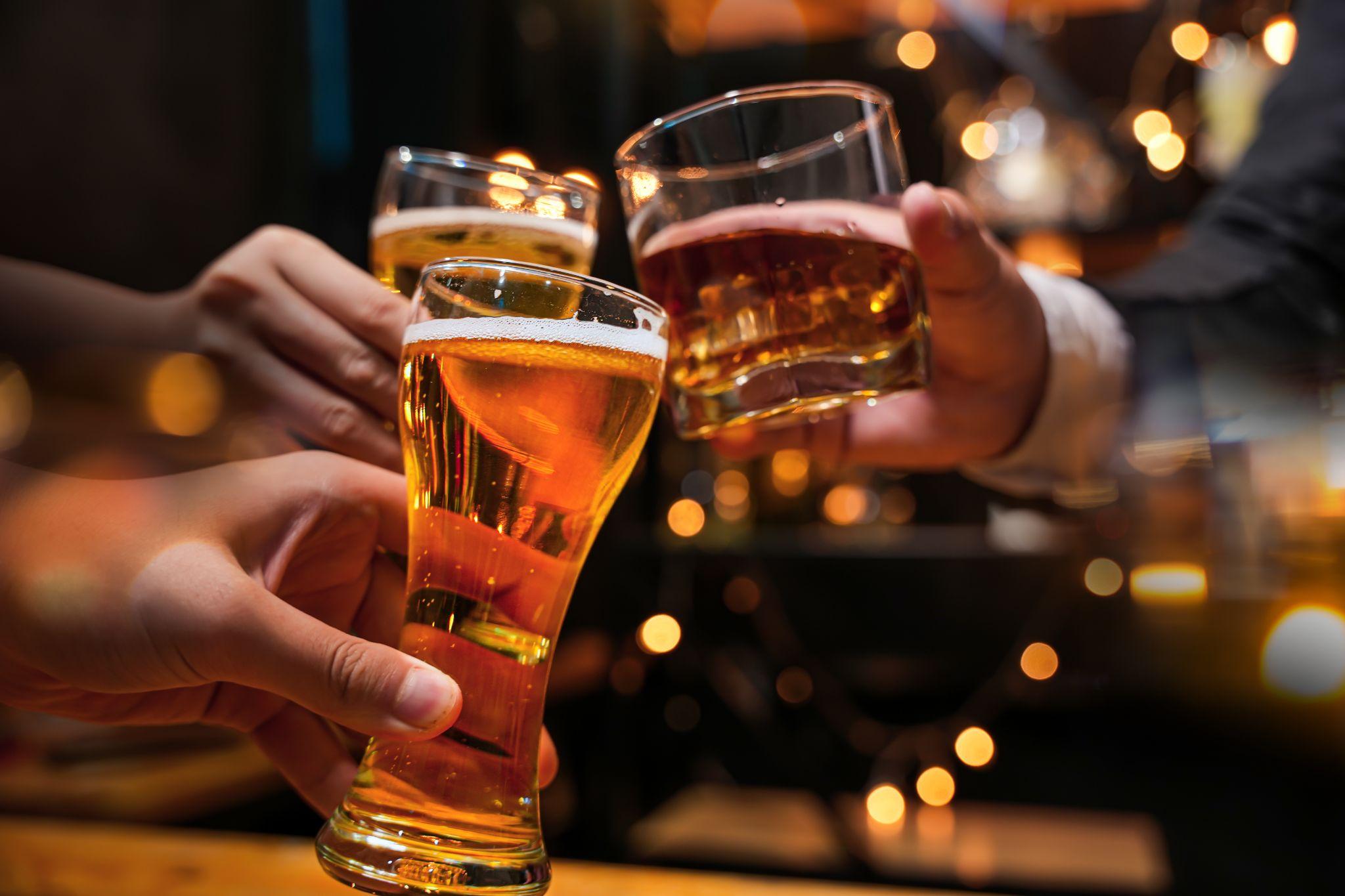Alcohol is deeply woven into many societies. It appears in celebrations, casual gatherings, and even somber moments. For some, it’s a way to relax or connect with others, but for some people, it can become a serious problem.
At Lumina Recovery, we believe that shedding light on drinking culture and how it can lead to unhealthy relationships with alcohol is important in helping individuals identify an addiction to alcohol.
What Is Drinking Culture?
Drinking culture refers to the customs and social behaviors surrounding the consumption of alcohol. It varies widely across different regions and communities. In some places, it’s common to have a drink with dinner. In others, heavy drinking and binge drinking at parties or during weekends are the norm.
Media, social norms, and traditions all play a role in shaping drinking culture. Movies, TV shows, and advertisements often depict alcohol as a way to have fun, socialize, or deal with stress. These portrayals can influence our attitudes and behaviors toward drinking.
For instance, popular movies often show characters bonding over drinks, celebrating with champagne, or finding solace in a glass of whiskey after a hard day. These representations can create an image of alcohol as a necessary part of life, reinforcing its place in our social fabric.
The Role of Social Norms
Social norms are unwritten rules about how to behave. They influence our actions and expectations. When it comes to drinking, social norms can have a powerful impact. If we see our friends and family drinking regularly, we might feel it’s normal to do the same.
Peer pressure is another factor, as in many social settings, refusing a drink can make one feel out of place. This peer pressure can lead people to drink more than they would on their own. For example, college parties or social gatherings often have an expectation to start drinking excessively to fit in or be part of the group.
Drinking can also be tied to social identity. In some circles, the ability to handle a lot of alcohol is seen as a sign of strength or social acceptance. This can lead individuals to drink more than they are comfortable with to maintain their social status or fit in with a particular group.
Social norms around drinking can also change with age and life stages. Young people may face significant pressure to drink in social settings like parties or college events. Middle-aged individuals might encounter norms around drinking at business dinners or social gatherings. Older adults might have different drinking habits, such as enjoying a glass of wine with dinner or meeting friends for cocktails.
Cultural celebrations and rituals often involve alcohol, further embedding it into social norms. Think of toasting at weddings, celebrating with champagne on New Year’s Eve, or enjoying a beer while watching sports. This can create strong associations between drinking and positive experiences. In some cultures, drinking is an integral part of rites of passage. For example, in the United States, turning 21 is celebrated with alcohol as it marks the legal drinking age.
Workplace culture can also influence drinking habits. In some industries, networking and socializing over drinks at happy hour is common. This can create a professional environment where drinking is seen as a way to build relationships and advance one’s career.
Recognizing Unhealthy Patterns
It’s important to be aware of the signs that drinking might be becoming a problem. These can include:
- Drinking Alone: Regularly drinking alone can be a sign of alcohol dependency. Drinking should ideally be a social activity, and when it becomes a solitary habit, it often indicates a deeper issue.
- Neglecting Responsibilities: If drinking starts to interfere with work, school, or family obligations, it might be time to reassess. Missing deadlines, poor performance, or neglecting duties because of drinking are red flags.
- Increased Tolerance: Needing more alcohol to feel the same effects is a warning sign. This increased tolerance often leads to higher consumption levels, which can escalate into dependency.
- Withdrawal Symptoms: Experiencing withdrawal symptoms, such as shakiness, anxiety, irritability, or nausea when not drinking, is a serious indicator of dependency. These physical and psychological symptoms can make it difficult to cut back or quit without help.
- Preoccupation with Drinking: Constantly thinking about drinking, planning activities around alcohol, or becoming irritable when alcohol is not available are signs of an unhealthy relationship with alcohol.
- Failed Attempts to Quit: Repeatedly trying to cut down or quit drinking and not being able to do so is a clear indication that professional help might be needed.
Seeking Help for Drinking
If you or a loved one is struggling with alcohol addiction, it’s important to seek help. Here are some steps you can take:
Talk to someone. Sharing your concerns with a trusted friend or family member can be the first step. Opening up about your struggles can provide emotional support and help you feel less alone.
Seek professional help. A doctor or counselor can provide support and guidance. Medical professionals can assess the severity of the problem and recommend appropriate treatment options, such as therapy, medication, or both.
Consider treatment programs. Inpatient or outpatient treatment programs can provide structured support and care. These programs often include a combination of therapy, education, and medical supervision to help individuals overcome addiction.
Create a supportive environment. Surround yourself with people who support your decision to cut back or quit drinking. Avoid situations where you might be tempted to drink, and engage in activities that do not involve alcohol.
Set realistic goals. Setting achievable goals for reducing or quitting alcohol can help you stay motivated. Celebrate your progress, no matter how small, and be patient with yourself.
Take the First Step Toward a Healthier Future With Lumina Recovery
Drinking culture is a complex and pervasive aspect of many societies. While it can promote socialization and enjoyment, it can also lead to unhealthy relationships with alcohol. Understanding the influence of drinking culture can help individuals make informed choices about their alcohol consumption.
Lumina Recovery offers comprehensive alcohol addiction treatment for individuals struggling with alcohol use disorders.
Connect with our team of specialists to start making informed choices today and build a supportive environment for a healthier relationship with alcohol.



